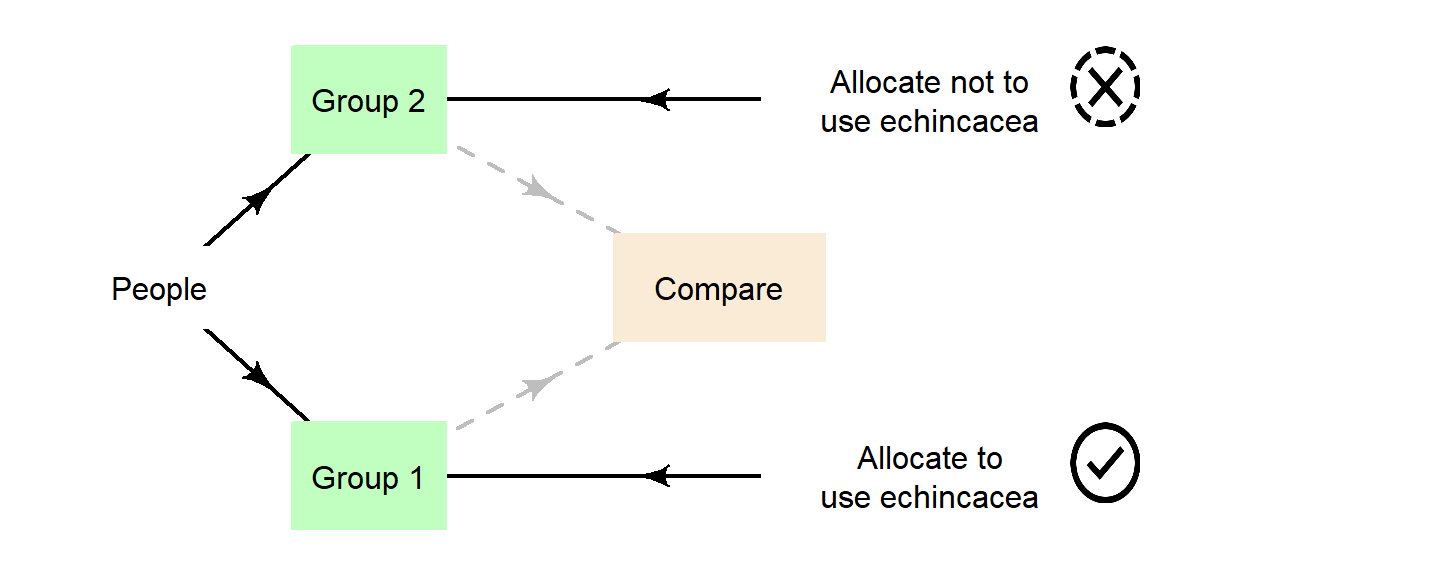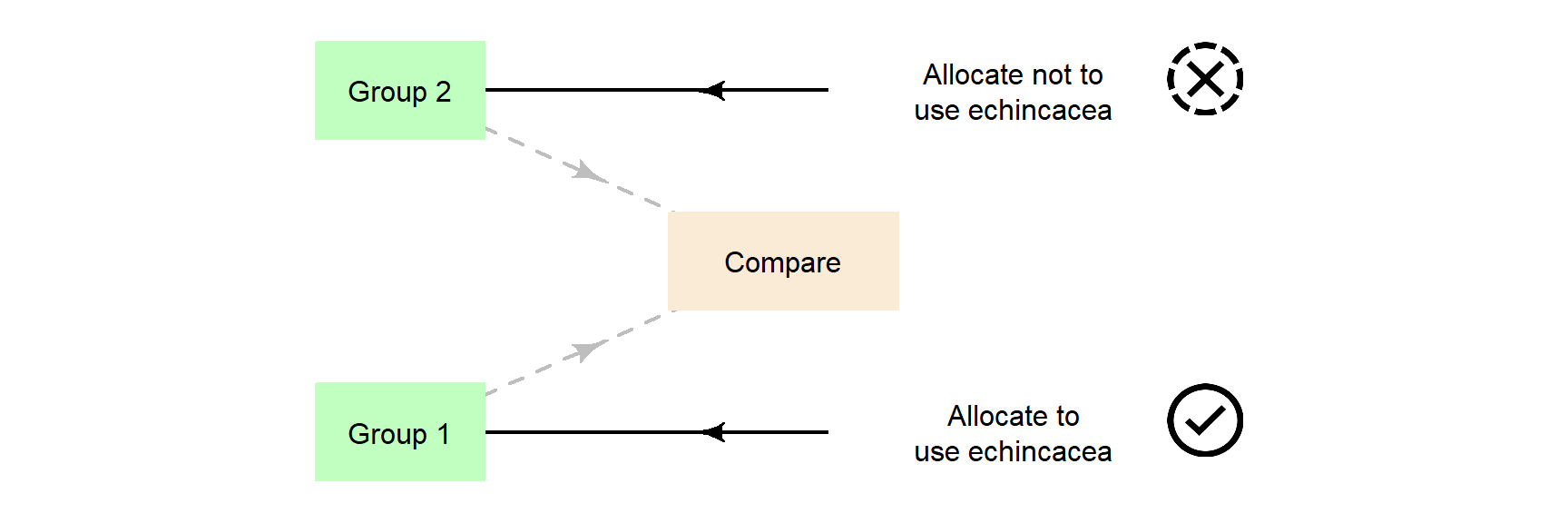1.4 Experimental studies
Experimental studies (Fig. 1.4), or experiments, are commonly used. Well-designed experimental studies can establish a cause-and-effect relationship between the response and explantory variables. However, using experimental studies is not always possible.
In experimental studies, the researcher creates changes in the explanatory variable, and notes the changes in the response variable. That is, experimental studies are used to answer interventional RQs.
Definition 1.4 (Experiment) In an experimental study (or an experiment), the researchers intervene to control the values of the explanatory variables (C) that are applied to the individuals. The researchers allocate treatments (i.e., apply the intervention).

Figure 1.4: An experimental study, used to answer interventional RQs
Definition 1.5 (Treatments) Treatments are the conditions of interest that those in the study can be exposed to (in the comparison/connection). In experiments, treatments are imposed by researchers.
Two types of experimental studies (Table 1.2) are:
| Study type | Researchers allocate who or what to groups | Researchers allocate treatments to groups | Reference |
|---|---|---|---|
| True experiment | Yes | Yes | Sect. 1.4.1 |
| Quasi-experiment | No | Yes | Sect. 1.4.2 |
| Observational | No | No | Sect. 1.3 |
1.4.1 True experimental studies
True experiments are commonly used, but cannot always be conducted. An example of a true experiment is a randomised controlled trial, often used in drug trials.
Definition 1.6 (True experiment) In a true experiment, the researchers:
- allocate treatments to groups of individuals (i.e., decide the values of the Comparison/Connection used on the individuals), and
- determine who or what individuals are in those groups.
While these may not actually happen explicitly, they can happen conceptually.

Example 1.7 (True experiment) The echinacea study (Barrett et al. 2010) could be designed as a true experiment. The researchers would allocate individuals to one of two groups, and then decide which group took echinacea and which group did not (Fig. 1.5).

Figure 1.5: True experimental studies
Lemma 1.2 (Experimental study) A researcher wants to examine the effect of an alcohol awareness program (MacDonald 2008) on the amount of alcohol consumed in O-Week. She runs the program at UQ only, then compared the average amount of drinking per person at two universities (A and B). What type of study is this: observational or true experimental? Answer these questions to help:
- Does the researcher allocate treatments to the groups?
- Does the researcher allocate subjects to groups?
1.4.2 Quasi-experimental studies
Quasi-experiments are similar to true experiments, but treatments are allocated to groups that already exist (as in Example 1.2).
Definition 1.7 (Quasi-experiment) In a quasi-experiment, the researchers:
- allocate treatments to groups of individuals (i.e., decide the values of the Comparison/Connection used on the individuals), but
- do not determine who or what individuals are in those groups.

Example 1.8 (Quasi-experiments) The echinacea study (based on Barrett et al. (2010)) could be designed as a quasi-experiment. The researchers would need to find (not create) two existing groups of people (say, from two different suburbs) then decide which group took echinacea and which group did not (Fig. 1.6).

Figure 1.6: Quasi-experimental studies